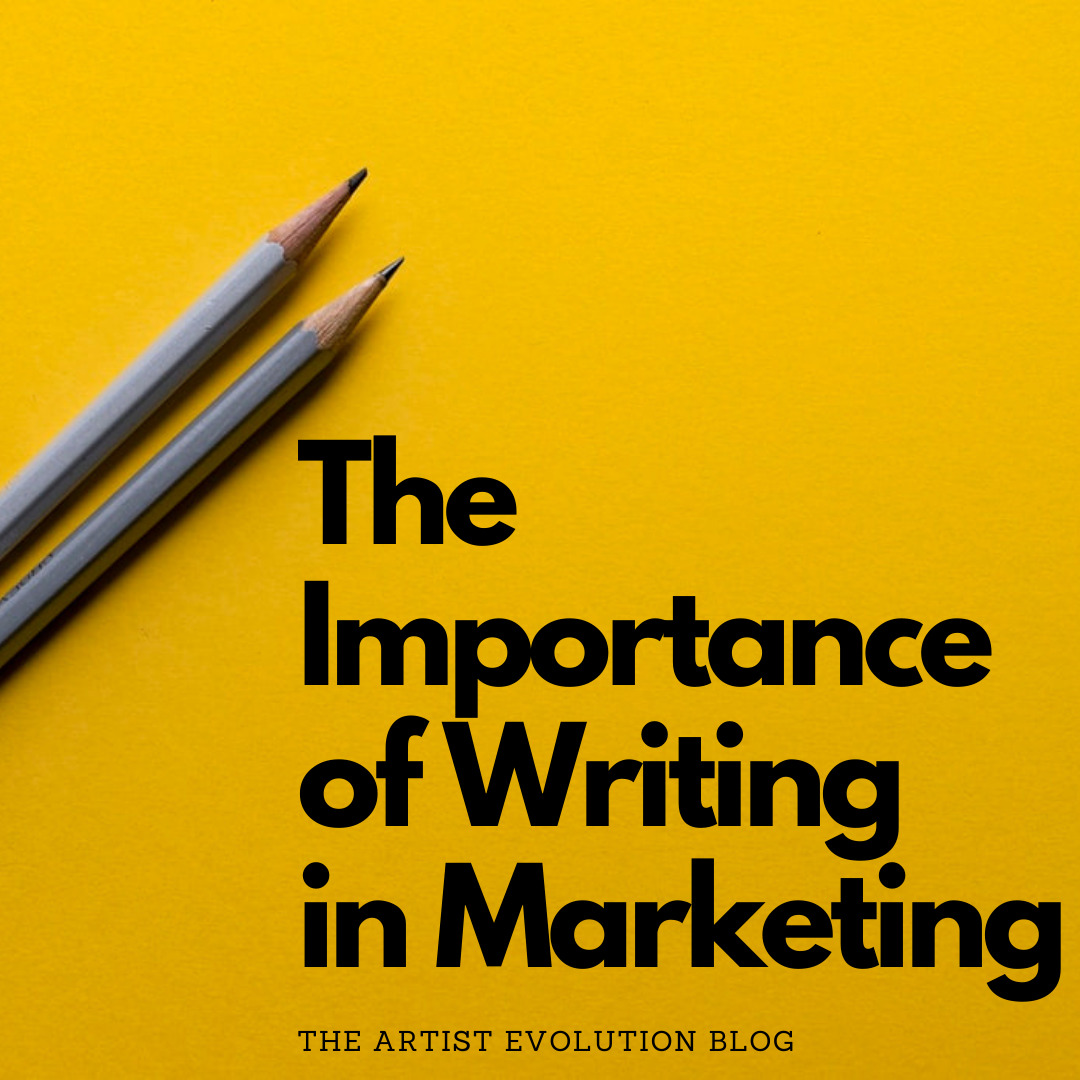The Importance of Writing in Marketing

Contributed by Bryce Ward
Social media, graphic design, commercials, e-blasts, print ads, branding… When you hear the word “marketing,” these are all things that are likely to pop into your mind. But the one thing that probably won’t pop into your mind (let’s pretend you stumbled onto this blog post without reading the title) is writing.
As a copywriter myself—that is, a marketing-specific writer—I would be lying if I said this doesn’t elicit a little bit of concern in me, not because my source of income depends on the recognition of copywriters’ importance (although that may play a small part) but because I see firsthand just how prevalent and important writing is in every aspect of marketing.
The Challenge of Copywriting
When I hear “social media, graphic design, commercials, e-blasts, print ads, and branding,” I think of the one thing they all share in common: an unavoidable and undeniable reliance on words.
From digital ads to social media posts, website copy to e-blasts, press releases to scripts, the success of all of these marketing mediums ultimately depends on words. And it turns out, choosing the right words and placing them in just the right order to persuade an audience is not so easy.
The thing is we humans instinctively resist being persuaded. To be persuaded means to change our previously held beliefs or opinions—beliefs and opinions that provide us with security, comfort, and stability. And who wants to give that up?
Naturally, this presents a problem for those of us in the business of persuading. But if there is one thing capable of persuading people who don’t want to be persuaded, it’s writing.
Writing, like any skill, requires practice—lots and lots of practice. Fortunately, the education system provides us with plenty of opportunities for such practice. But unfortunately, this practice often screeches to a halt the second we enter the workforce.
Without scrupulous teachers decorating our essays in red ink, it’s easy to let our writing fall to the wayside. And the second we stop trying to become better writers, we gradually and inevitably become worse writers.
Just as runners must train consistently to maintain their endurance fitness, we must write consistently to maintain our “writing fitness.”
To complicate matters, much of the writing advice we receive in school—which is often the full extent of the writing advice we receive—does not always apply to copywriting. And in some cases, it can even be counterproductive or, at worst, detrimental to our goals.
Copywriting vs. Academic Writing
The type of writing we learn in school differs from copywriting in one crucial way: In the real world, the reader is not paid to read our work from beginning to end—or at all for that matter.
We have to earn the reader’s time and prolonged attention, and in our increasingly distracted age, long explanatory essays with three-paragraph structures and impressive vocabularies is not the way to do it (unless, perhaps, you’re marketing to teachers).
This is not to say that everything we learn in school about writing is inapplicable to copywriting. Active voice, spelling, and good grammar are just a few of the helpful writing guidelines we should still try to follow.
But copywriting, unlike academic writing, is flexible. Because our goal is to earn the reader’s time and attention (not to impress them), we write in whatever way helps us achieve that goal.
In reality, copywriting is much closer to creative writing than it is to academic writing. In other words, it has much more in common with poetry and fiction than it does with essays.
Forget Writing Conventions
Like copywriters, poets and authors write toward a desired effect—conventions are only a secondary concern. Structure and word choice, when chosen artfully and not formulaically, can influence a reader more than the most well-crafted essay.
Not ending a sentence with a period is enough to send an English teacher into fits of madness, but in website copy it is an effective way to subconsciously guide the reader from one portion of a website to the next without pause.
Writing in all-caps may be frowned upon in the schoolroom, but in digital advertising it is a great way to grab readers’ attention as they scroll quickly through their social media feeds.
Using short paragraphs and repeating words is considered bad etiquette in academia, but for blog posts it is crucial for search engine optimization and readability.
One thing that academic writing and copywriting do share in common, though, is their end goal: persuasion. However, in copywriting we achieve that persuasion in a much different way—an indirect way.
Write Toward an Effect
When authors and poets set out to write a work, they rarely strive for persuasion. Instead, they strive to elicit an emotion or to tell a story. Ironically, when an emotion is successfully elicited or a story is well-told, poetry and fiction can become powerfully persuasive.
When we finish a novel, for example, we almost always have a different perspective than we did when we began reading it. Though persuasion is not the primary goal, it is a bi-product, and it is only achieved because that internal someone-is-trying-to-persuade-me alarm never goes off.
When we read poems and novels, or engage with any art form for that matter, we let our guards down. We suspend our disbelief. Because if we don’t, we will gain nothing, learn nothing, and feel nothing.
That is why creative writing has the potential to be much more persuasive than academic writing. It’s why we read and remember War and Peace but not essays on war and peace.
When persuasion takes the back seat, as it does in creative writing, people open themselves up to change—to being persuaded. If we want to motivate consumers to “like,” “share,” and buy, we must write creatively.
In Summary
Writing is an unavoidable part of marketing. It’s also difficult because people naturally resist the type of persuasion that marketing sets out to achieve. But when you change your approach to copywriting—when you think of yourself as an artist and not a student—you’ll be surprised at just how powerful your words will become.

About The Artist Evolution
The Artist Evolution (TAE) is a full-service marketing agency headquartered in Fayetteville, Arkansas. We help clients in a wide range of industries fill in the gaps on their marketing strategy. From marketing plan creation to campaign execution and ongoing management, we are your one-stop shop for all your marketing needs. Contact us to learn how we can help you.


